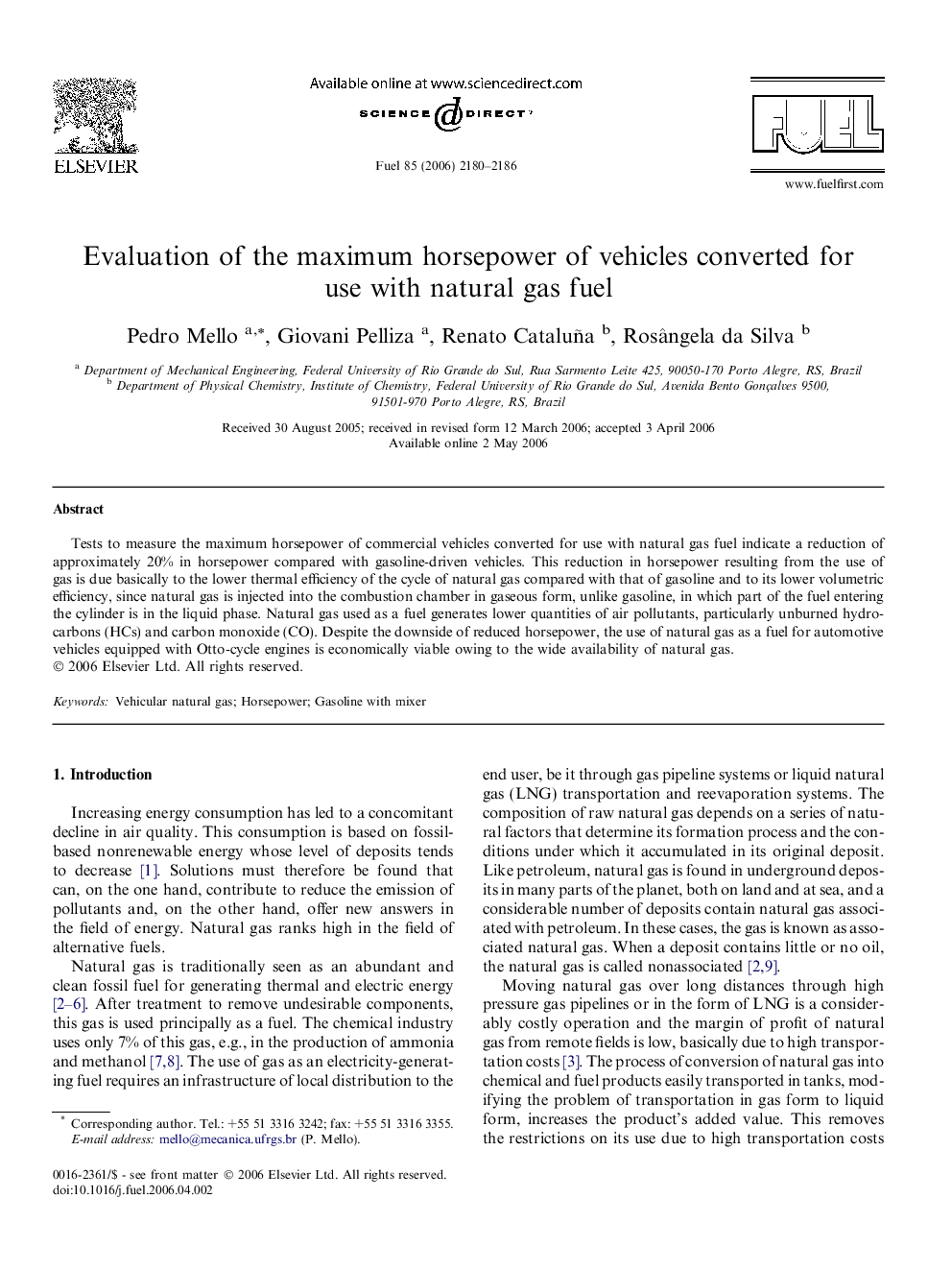| Article ID | Journal | Published Year | Pages | File Type |
|---|---|---|---|---|
| 208441 | Fuel | 2006 | 7 Pages |
Tests to measure the maximum horsepower of commercial vehicles converted for use with natural gas fuel indicate a reduction of approximately 20% in horsepower compared with gasoline-driven vehicles. This reduction in horsepower resulting from the use of gas is due basically to the lower thermal efficiency of the cycle of natural gas compared with that of gasoline and to its lower volumetric efficiency, since natural gas is injected into the combustion chamber in gaseous form, unlike gasoline, in which part of the fuel entering the cylinder is in the liquid phase. Natural gas used as a fuel generates lower quantities of air pollutants, particularly unburned hydrocarbons (HCs) and carbon monoxide (CO). Despite the downside of reduced horsepower, the use of natural gas as a fuel for automotive vehicles equipped with Otto-cycle engines is economically viable owing to the wide availability of natural gas.
